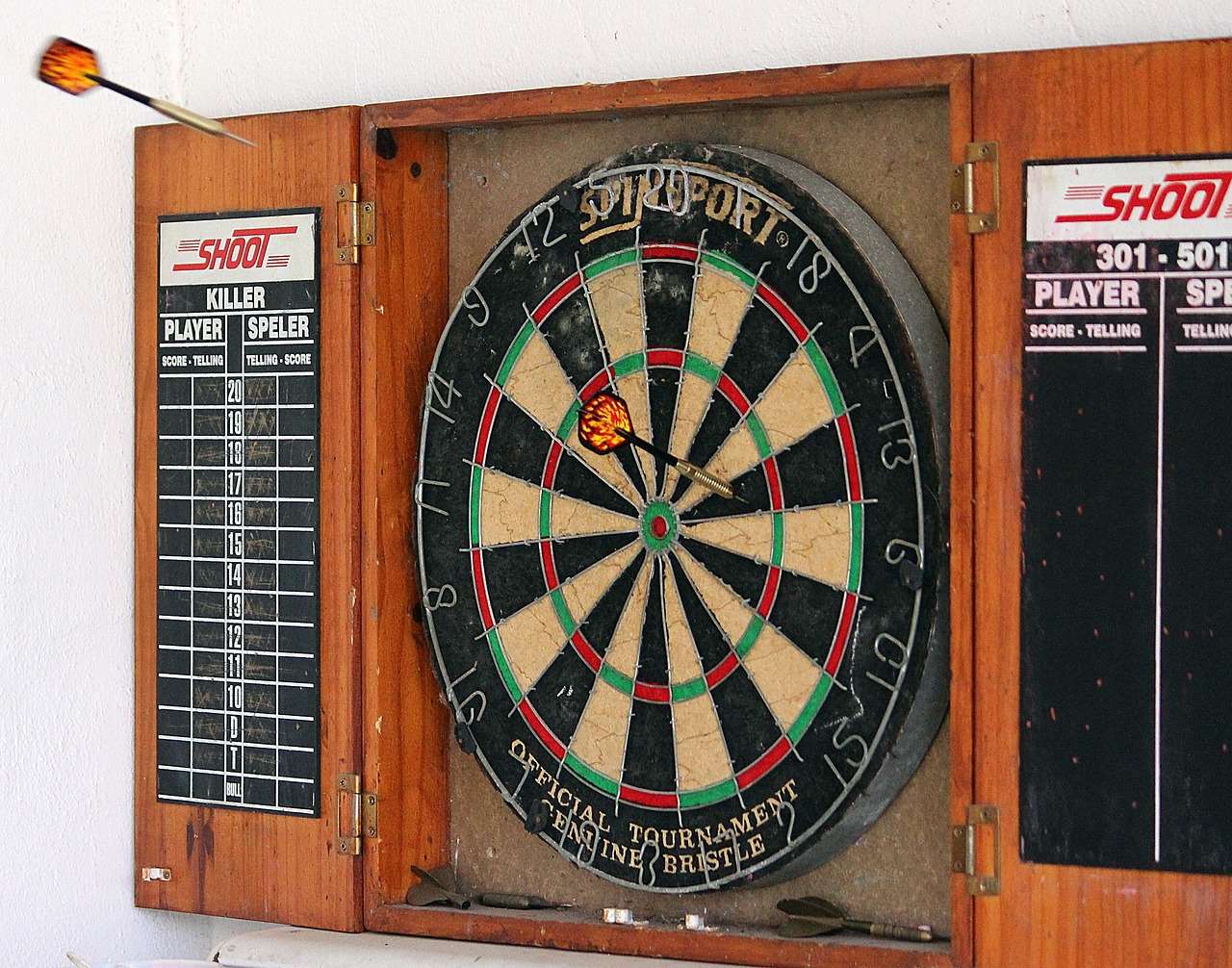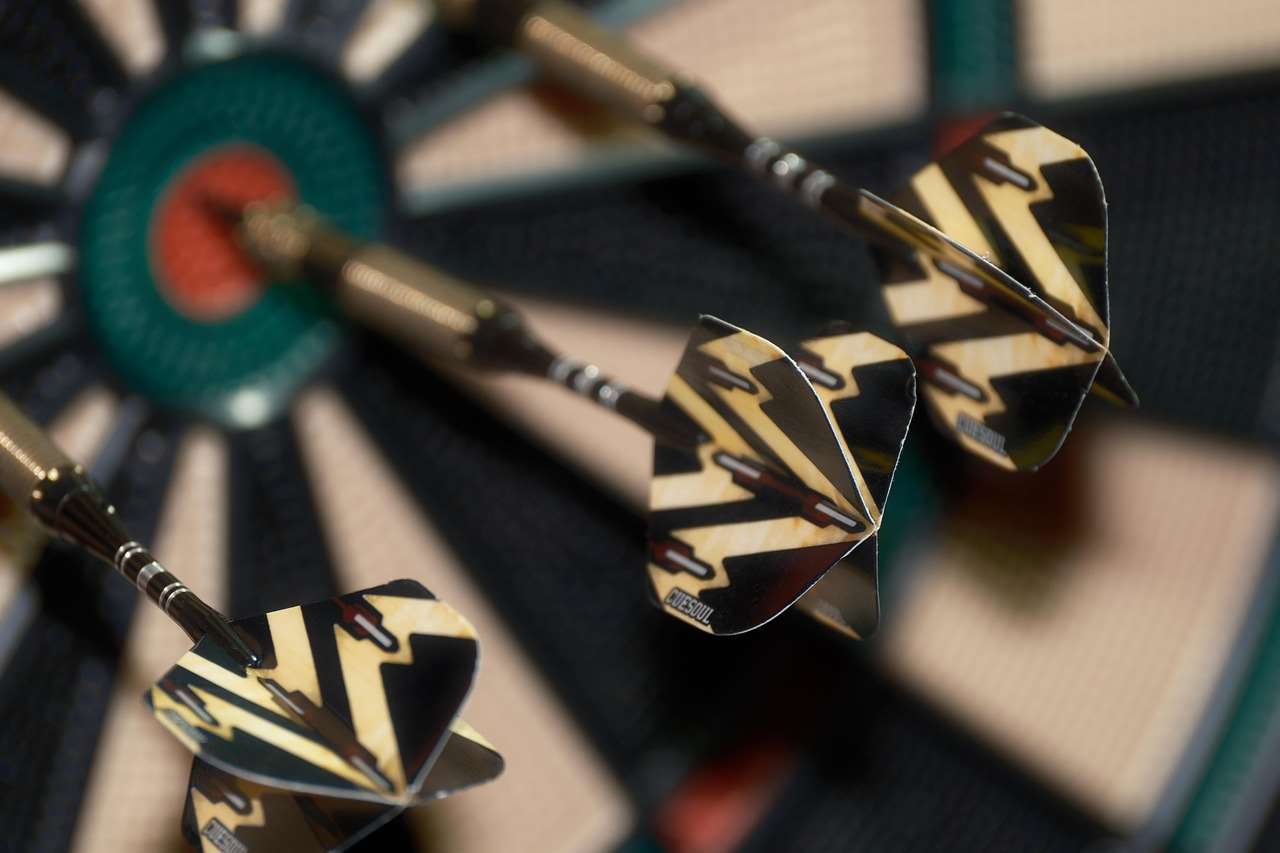Want to spice up your 501 dart games? While the standard rules are classic, exploring **501 game modifications rules** can inject new life and challenges into your matches. This article delves into various ways to alter the traditional 501 format, making it more exciting for players of all skill levels, and covering everything from scoring adjustments to gameplay changes.
⚠️ Still Using Pen & Paper (or a Chalkboard)?! ⚠️
Step into the future! The Dart Counter App handles all the scoring, suggests checkouts, and tracks your stats automatically. It's easier than you think!
Try the Smart Dart Counter App FREE!Ready for an upgrade? Click above!
Exploring 501 Game Modifications Rules
The beauty of darts lies in its adaptability. While the core rules of 501 provide a solid foundation, there’s ample room for creativity. Understanding the possibilities for 501 game modifications rules can transform a familiar game into a fresh and engaging experience. This article explores a spectrum of alterations designed to enhance gameplay and cater to different preferences. Think of this as your guide to customising your darting adventures.

Tweaking the Starting Score: Beyond 501
While 501 is the standard, don’t be afraid to experiment with different starting scores. Here are a few ideas:
- 301: A shorter game, ideal for quick matches or beginners. Reduces the game length and focuses on accuracy in the final stages.
- 701 or 1001: Lengthens the game, testing endurance and consistency. This adds strategic depth, especially in team play.
- Custom Scores: Choose any number! Maybe base it on a significant date or personal number for added fun. Consider using a random number generator for unpredictable starting points.
Modified Checkout Rules: Adding a Layer of Complexity
Traditional 501 requires a double to finish. But what if we change that? Exploring 501 game modifications rules in this area can significantly alter the game’s dynamic. This increases the difficulty, testing the players’ precision and calculation skills.
Variations on the Double Out Rule
- Master Out: Requires finishing on either a double or a treble. This expands the finishing possibilities while still demanding accuracy.
- Single Out: Allows finishing on any single number, removing the need for a double. This speeds up the game and rewards consistent scoring.
- Specific Double Out: Mandates finishing on a particular double number (e.g., Double 20). This forces players to strategize and aim for specific targets.
- No Checkout: If you bust (score goes to 1 or less), you must return to your previous score.
Forcing a Specific Checkout
For advanced players looking for a real challenge, introduce the rule that a specific checkout must be achieved within a certain number of darts. For instance, they must finish with a 100 checkout within 6 darts or face a penalty. These types of game modifications rules can be tailored to the player’s abilities and the level of challenge desired. If you are interested in exploring more fun, you may want to investigate Darts Variants Fun Games.
Handicap Systems: Leveling the Playing Field
When players of different skill levels compete, a handicap system can create a fairer and more engaging game. Here’s how to implement 501 game modifications rules through handicapping:

- Starting Score Adjustment: The weaker player starts with a lower score (e.g., 301 instead of 501), giving them a head start.
- Extra Darts: The weaker player receives a certain number of extra darts per turn.
- Point Adjustments: After a set number of rounds, the stronger player will have their scores adjusted downward. The amount depends on how well the player is doing in the match.
- Target Restriction: The stronger player may be restricted to aiming at only certain areas of the board. For example, they can only hit the top half of the board, making it harder to score big numbers.
Target Practice Integration
Turning each game of 501 into a target practice session is a great way to improve your darting skills. With these types of 501 game modifications rules, you can work on your accuracy and consistency while still playing a competitive game of 501.
Modified Scoring Systems
Changing the scoring system can add an interesting twist. Consider these options:
- Trebles Only: Only treble hits count towards the score. This drastically increases the difficulty and rewards precise aiming.
- Doubles Only: Only double hits count. This is similar to trebles only, but can lead to more strategic gameplay.
- Segment Values: Assign different point values to specific segments of the dartboard. This can create new strategic targets and scoring opportunities.
- Bullseye Bonus: Hitting the bullseye awards a bonus amount. The amount will depend on how difficult the player deems it to be.
Team Based Modifications for 501 Games
Injecting team based **game modifications rules** can transform a typical 501 game into an engaging, social event. Modifying 501 for team play provides a unique and exhilarating experience, fostering cooperation and camaraderie.
Team Rotations and Strategic Play
Implement rotations where players switch positions or roles after each leg. Enforce strategic discussions before each throw, requiring team members to agree on a target. Consider a “captain’s call” option, allowing the team captain to override a throw decision once per leg.
Synchronized Throws for Bonus Points
Introduce a rule where if two or more players hit the same number on the board in the same round, the team receives bonus points. The amount of bonus points will depend on how many players hit the number. This encourages synchronized team work.
Penalty Rules: Adding Pressure and Consequences
Introducing penalty rules can inject a sense of risk and reward into the game. Implementing 501 game modifications rules centered around penalties can create intense moments. It’s also possible to find obscure dartboard games list that may have similar characteristics.

- Bust Penalty: Busting (going below zero) results in a point deduction or forfeiture of the turn.
- Miscount Penalty: Incorrectly calling out the score results in a point penalty.
- Foul Line Violation: Stepping over the foul line results in a forfeited dart.
- Board Interference: Touching or interfering with darts on the board results in a penalty.
Consider that dart games before 501 invented rarely included penalty rules, but can be beneficial.
Limited Darts Round
For a faster paced game, set a limit to the number of darts each player can throw per round. This will add more pressure to each round and force players to make the most of their shots. These types of 501 game modifications rules can also be used to handicap players. It also tests your ability to focus under pressure.
Strategic Time Outs
Add a strategic layer by allowing players to call time-outs. During a time-out, players can assess their strategy, discuss with teammates (if applicable), or simply collect themselves. These types of 501 game modifications rules can change the momentum of a game.

Blind 501: A Test of Intuition
Play 501 with a blindfold! One player calls the shots and guides the blindfolded player. This is a fun variation that requires trust and communication. This is a test of intuition and trust between players. This is a very unique and challenging 501 game modifications rules.
Progressive Checkout
In this modification, the checkout requirement increases after each round. For example, in the first round, you only need to hit a single to checkout. In the second round, you need a double, and in the third round, you need a treble. This adds a layer of progressive difficulty to the game. These types of 501 game modifications rules require players to adapt their strategies as the game progresses.
Integrating Themes
Themed darts nights can add another layer of fun to the game. Consider these themes for more unique 501 game modifications rules. For example, a Halloween themed game can incorporate rules where hitting certain segments triggers spooky sound effects. Similarly, a sports themed game might reward hitting the bullseye with a virtual “goal” announcement.
Modified Board Setups
While uncommon, changing the physical setup of the board itself can create completely unique challenges. These kinds of 501 game modifications rules are generally more for fun than competitive play, but they can lead to interesting results.
Distance and Board Height Variations
Slightly increasing or decreasing the throwing distance can alter the difficulty. Altering the height of the dartboard could also make the game more challenging for players of certain heights. Players who want to dive deeper may look into history of darts games uk.
Target Size Reductions
Covering parts of the board to reduce the size of target areas would significantly increase the skill required. Players could cover all of the board aside from the bullseye to start, then gradually reveal more of the board.

Adding Movement Requirements
This modification combines physical activity with darts. Before each throw, players must perform a simple exercise like jumping jacks or push-ups. The number of repetitions could be linked to the score they need to achieve. This is a fun way to add a physical challenge to the mental game of darts. Incorporating physical activity with 501 game modifications rules introduces a fun and healthy twist.
Conclusion
Experimenting with 501 game modifications rules opens up a world of possibilities, transforming a classic game into a constantly evolving challenge. From tweaking checkout rules to implementing handicap systems, these modifications cater to diverse skill levels and preferences. So, gather your friends, explore these options, and discover the perfect blend of rules to elevate your darting experience. Consider experimenting with a combination of these rules to find the perfect balance of challenge, fun, and competitiveness for your group. What modifications will you try first? Take your love of the game even further by considering checking out other old dart games rules to play.
Hi, I’m Dieter, and I created Dartcounter (Dartcounterapp.com). My motivation wasn’t being a darts expert – quite the opposite! When I first started playing, I loved the game but found keeping accurate scores and tracking stats difficult and distracting.
I figured I couldn’t be the only one struggling with this. So, I decided to build a solution: an easy-to-use application that everyone, no matter their experience level, could use to manage scoring effortlessly.
My goal for Dartcounter was simple: let the app handle the numbers – the scoring, the averages, the stats, even checkout suggestions – so players could focus purely on their throw and enjoying the game. It began as a way to solve my own beginner’s problem, and I’m thrilled it has grown into a helpful tool for the wider darts community.